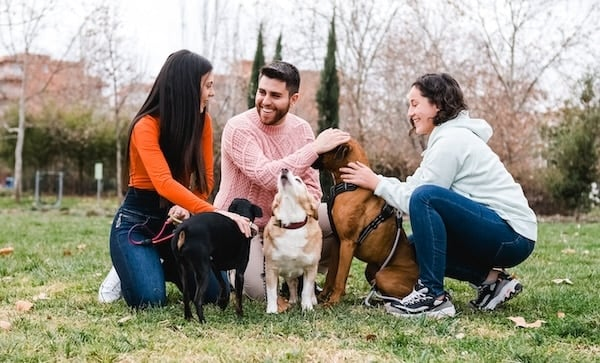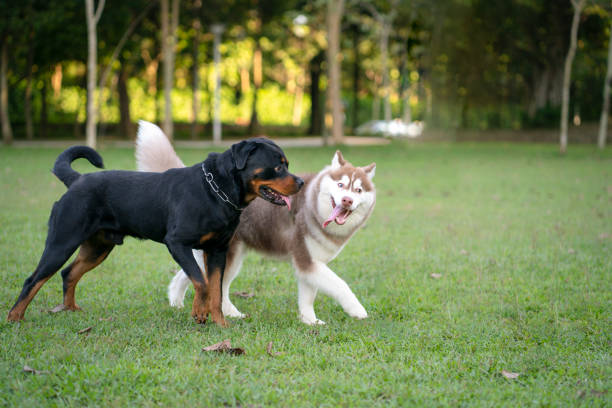In this colorful world, every dog is a unique life form. They explore everything around them with their eyes full of curiosity and warmth. Unlike the complex and ever-changing fast pace and high pressure in human society, the world of dogs is more innocent and direct. However, just as humans need social interaction to enrich their emotions and promote mental health, the social interaction of dogs is equally important. It is the key to their happy growth and healthy life.
1. Understanding the social needs of dogs
First of all, we need to realize that every dog has unique social needs. The puppy period is a critical period for the formation of social skills. They learn how to communicate, share and respect boundaries correctly through interactions with their companions, humans and other animals. Adult dogs also need social interaction to maintain mental health and reduce anxiety and stress. Therefore, it is crucial to provide your dog with appropriate socialization opportunities.
2. Create a safe social environment
- Choose a suitable social place: parks, pet-friendly cafes or special dog gathering places are all good choices. Make sure these places are clean, spacious and well ventilated.
- Gradually introduce new environments: For dogs with more introverted personalities or who are trying socialization for the first time, it is recommended to start from places with fewer people and dogs and gradually expand the social circle.
- Supervision and guidance: During the socialization process of dogs, the owner should accompany and observe closely, and stop any behavior that may cause conflict in time to ensure that social activities are carried out safely and orderly.

3. Cultivate correct social etiquette
- Basic training: Teach dogs basic obedience commands, such as "sit", "standby", "come", etc. These commands can help control the dog's behavior in social situations and avoid accidents.
- Respect others and dogs: Educate dogs to keep a proper distance from other dogs and humans, and do not bark, pounce on people or snatch toys at will.
- Sharing and taking turns: When playing with other dogs, guide dogs to learn to share toys and attention, and cultivate their patience and sense of taking turns.
4. Encourage positive interactions
- Positive rewards: When dogs show good social behavior, give praise and rewards in time, such as petting, snacks or toys, to enhance their positive behavior. Avoid using punishment or intimidation to avoid making your dog fearful or resistant to social interaction.
- Social games: Organize some interesting social games, such as chasing balls, tug-of-war games, etc. These activities can not only enhance the friendship between dogs, but also exercise their bodies.
- Social partners: Find social partners with similar personalities for your dog and arrange for them to play together regularly, which will help establish a stable social relationship.

5. Pay attention to the dog's emotional changes
During the social process, always observe and understand the dog's signals, and give them enough space and time to adapt to the new environment. Each dog has its own unique personality and rhythm. Don't force them to engage in social activities they don't like. If the dog shows tension, restlessness or aggression, stop the social activities immediately and try to find out the reasons. If necessary, seek help from a professional dog trainer or veterinarian.
In short, making the dog's social life healthier and happier requires careful observation, patient guidance and scientific training from us as owners. By creating a safe social environment for dogs, cultivating correct social etiquette, encouraging positive interactions and paying attention to their emotional changes, we can help dogs build a social circle full of love and harmony, making their lives more colorful, healthy and happy.









0 Comments